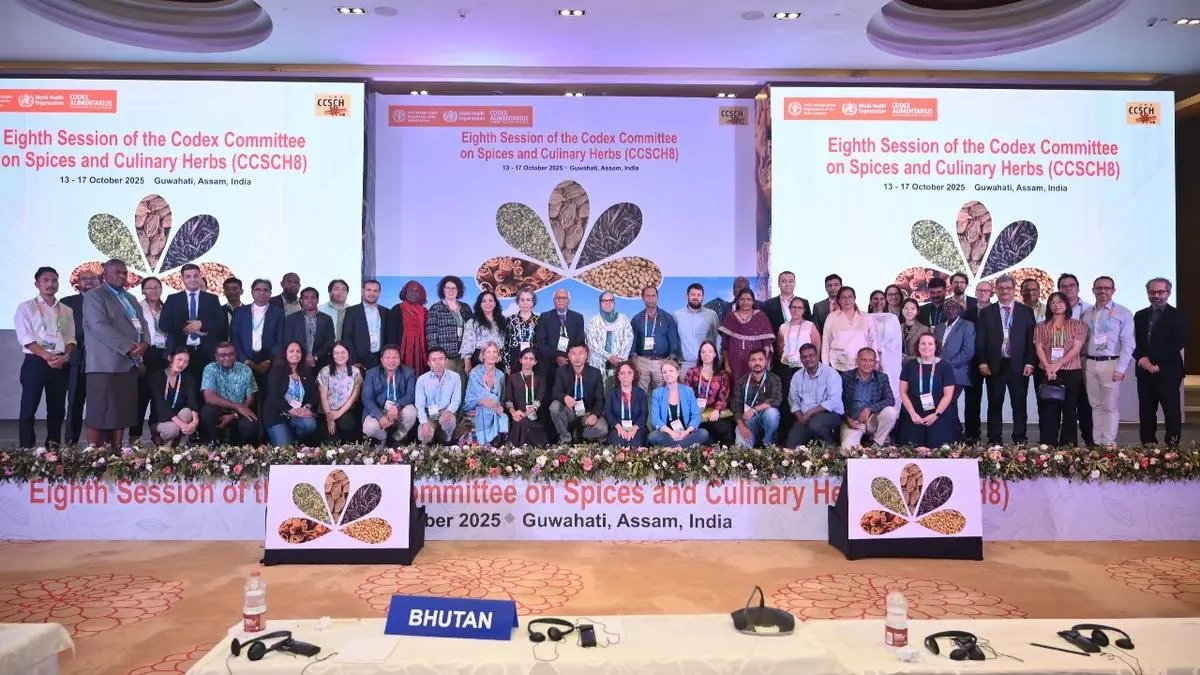Codex standards finalised for vanilla, coriander and large cardamom at 8th session in Guwahati


The 8th session of CCSCH had active participation from 30 countries and observers and it reflects the growing international awareness of the importance of ensuring quality, safety, and authenticity in the global spice trade
The 8th Session of the Codex Committee on Spices and Culinary Herbs (CCSCH8) concluded in Guwahati, marking a significant milestone in global spice standard-setting.
A key highlight of the session was the finalisation of three new standards for large cardamom, vanilla, and coriander, which have now been recommended for adoption by the Codex Alimentarius Commission.
With the finalisation of three new standards in the current session, the Codex Committee on Spices and Culinary Herbs has finalised standards for 19 spices including pepper, turmeric, cumin, nutmeg, cardamom, and saffron.
The vanilla standard, in particular, had been under discussion across multiple sessions due to the technical complexity of flavour chemistry and processing variations. Its successful finalization reflects the spirit of international collaboration prevalent in this committee, in the interest of ensuring quality and safety in spices without compromising scientific rigour.
With uniform benchmarks in Codex now established, farmers, processors, and exporters of large cardamom, vanilla and coriander around the world will have globally accepted reference points enabling them to operate with greater clarity and confidence, which also benefits the global consumer in turn, said. P. Hemalatha, Secretary, Spices Board.
India to benefit
These new standards are significant for the global spice trade. India, a leading producer and exporter of large cardamom and coriander, is expected to benefit from harmonised global benchmarks, which will facilitate smoother market access and strengthen export competitiveness. While vanilla is largely imported into India, the establishment of uniform quality standards ensures consistency for global trade and consumer confidence, she added.
The 8th session of CCSCH had active participation from 30 countries and observers and it reflects the growing international awareness of the importance of ensuring quality, safety, and authenticity in the global spice trade. Such broad representation signifies the shared commitment of producing and consuming nations alike to develop harmonized, science-based standards that protect consumers and support fair trade. The strong engagement also highlights the rising global consumer demand for verified quality and traceability in food products, with spices, being among the most widely traded commodities, at the forefront of this movement, said Hilde Kruse, Senior Food Safety Officer of the Codex Alimentarius Commission.
Published on October 17, 2025



